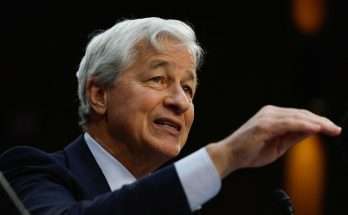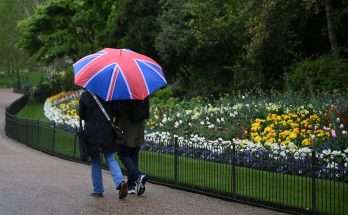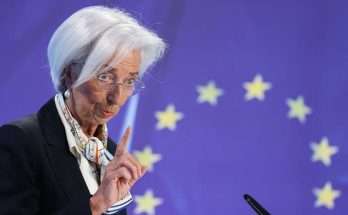Jamie Dimon, Chairman of the Board and Chief Executive Officer of JPMorgan Chase & Co., gestures as he speaks during an interview with Reuters in Miami, Florida, U.S., February 8, 2023.
Marco Bello | Reuters
JPMorgan Chase & Co. CEO Jamie Dimon says geopolitics after Russia’s invasion in Ukraine is the biggest risk, larger than high inflation or a U.S. recession.
Global markets have taken a hit over the past week, as the U.S. Federal Reserve signaled that interest rates will likely remain higher for longer, in order to bring inflation sustainably back down to its 2% target.
Speaking to CNBC TV-18 in India on Tuesday, Dimon said people should “be prepared for higher oil and gas prices, higher rates, as a matter of just being prepared,” but that the U.S. economy will likely get through any turbulence. However, the war in Ukraine has polarized global powers and shows no sign of abating.
“I think the geopolitical situation is the thing that most concerns me, and we don’t know the effect of that in the economy,” he added.
“I think that the humanitarian part is far more important. I think it’s also very important for the future of the free democratic world. We may be at an inflection point for the free democratic world. That’s how seriously I take it.”
Further negative pressure on markets in recent months has come from a slowdown in the Chinese economy, driven in large part by weakness in its massive property market.
Asked about the potential impact of this slump on the long-term prospects for China and the global economy, Dimon again suggested that Eastern Europe was the actual epicentre of risk, with the war in Ukraine straining relationships between economic superpowers.
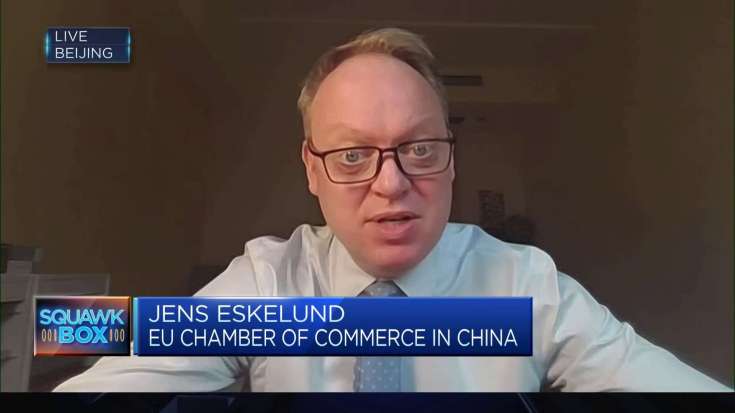
“Far more important to me is the Ukraine war, oil, gas, food migration — it’s affecting all global relationships — very importantly, the one between America and China,” Dimon said.
“I think America takes this very seriously, I’m not quite sure how the rest of the world does. You have a European democratic nation invaded under the threat of nuclear blackmail. I think it’s been a good response, but it’s going to it’s going to affect all of our relationships until somehow the war is resolved.”
China and India have attempted to maintain a neutral stance on the war and position themselves as potential peacemakers, utilizing the closer ties with Russia demonstrated by the BRICS alliance. Bejing has submitted a peace plan proposal to resolve the conflict in Ukraine, which has so far failed to gain traction.
This placed the world’s two most populous countries somewhat at odds with the U.S. and Europe, which have supplied Ukraine with weapons and financial support in the belief that only a Ukrainian victory will restore international order.
“India is going its own way. They’ve made their priorities quite clear about national security and what that means,” Dimon said.
“I’m an American patriot, so governments are going to set foreign policy, not JPMorgan, but I think Americans should stop thinking that China is a 10-foot giant. Our GDP per person is $80,000, we have all the food, water and energy we need, we’ve got the unbelievable benefits of free enterprise and freedom.”
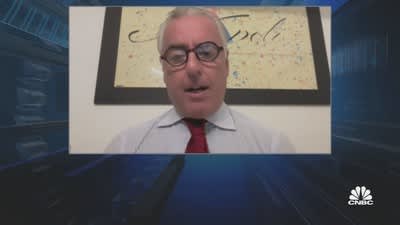
The Wall Street titan added that renewed U.S. engagement with China on issues such as trade and national security was positive, and that he would like to see more of it to rebalance the trade and investment relationship between Washington and Beijing, even if that caused a “little bit of unravelling.”
“But it’s not just America, every country is relooking at its net. What is national security? Do I have reliant energy lines? Do I need semiconductors from China? Where do I get my rare earths from? Ukraine woke everyone up to that and that’s a permanent state of affairs now,” Dimon said.
Asked if geopolitics was the number one risk facing the world today, Dimon responded “absolutely.”
“We have dealt with inflation before, we dealt with deficits before, we have dealt with recessions before, and we haven’t really seen something like this pretty much since World War II,” he added.
